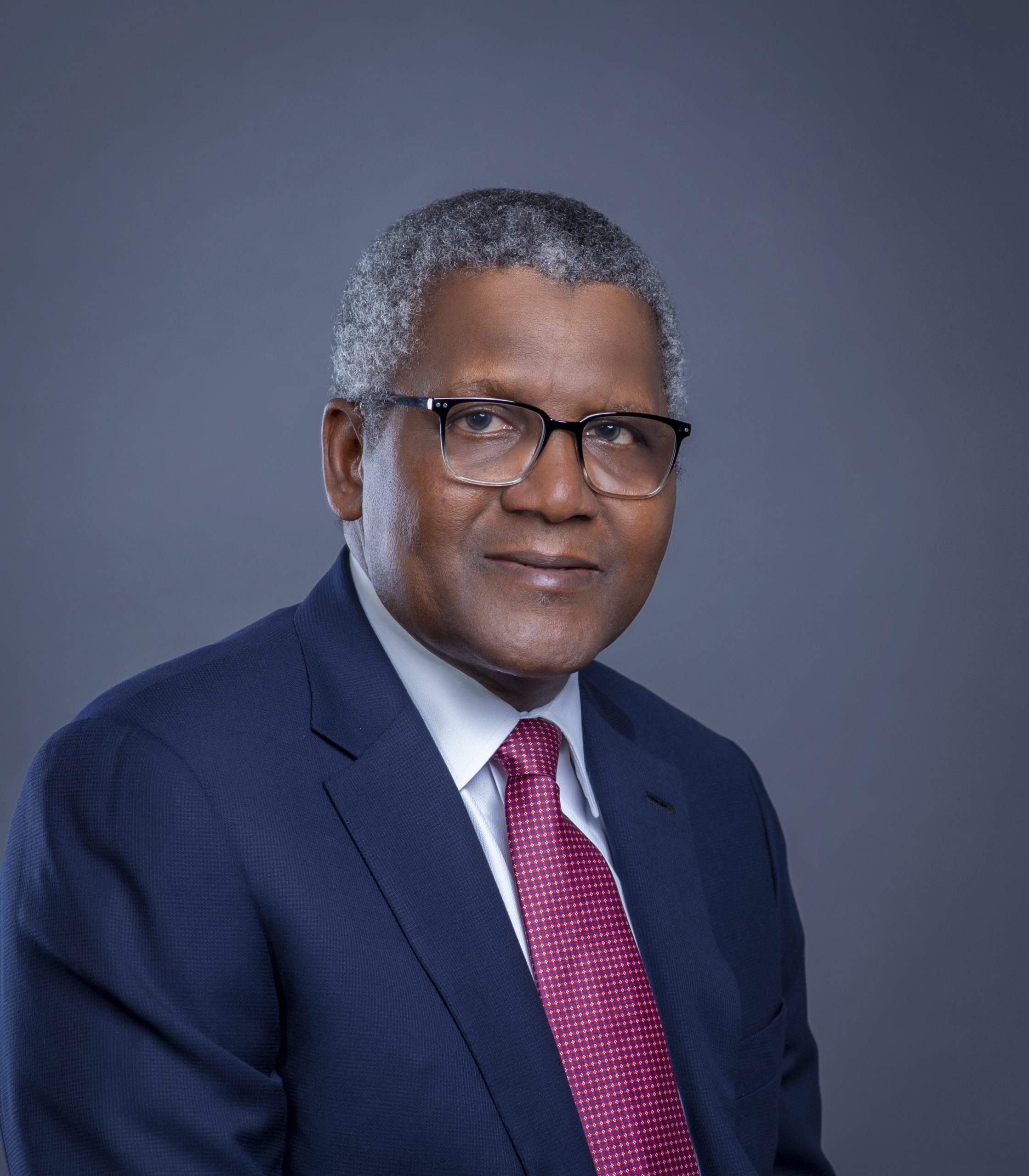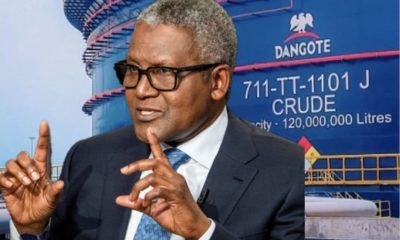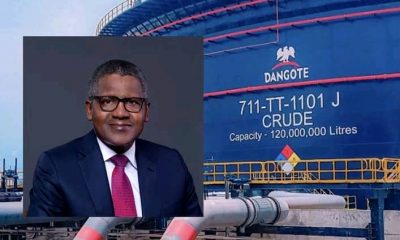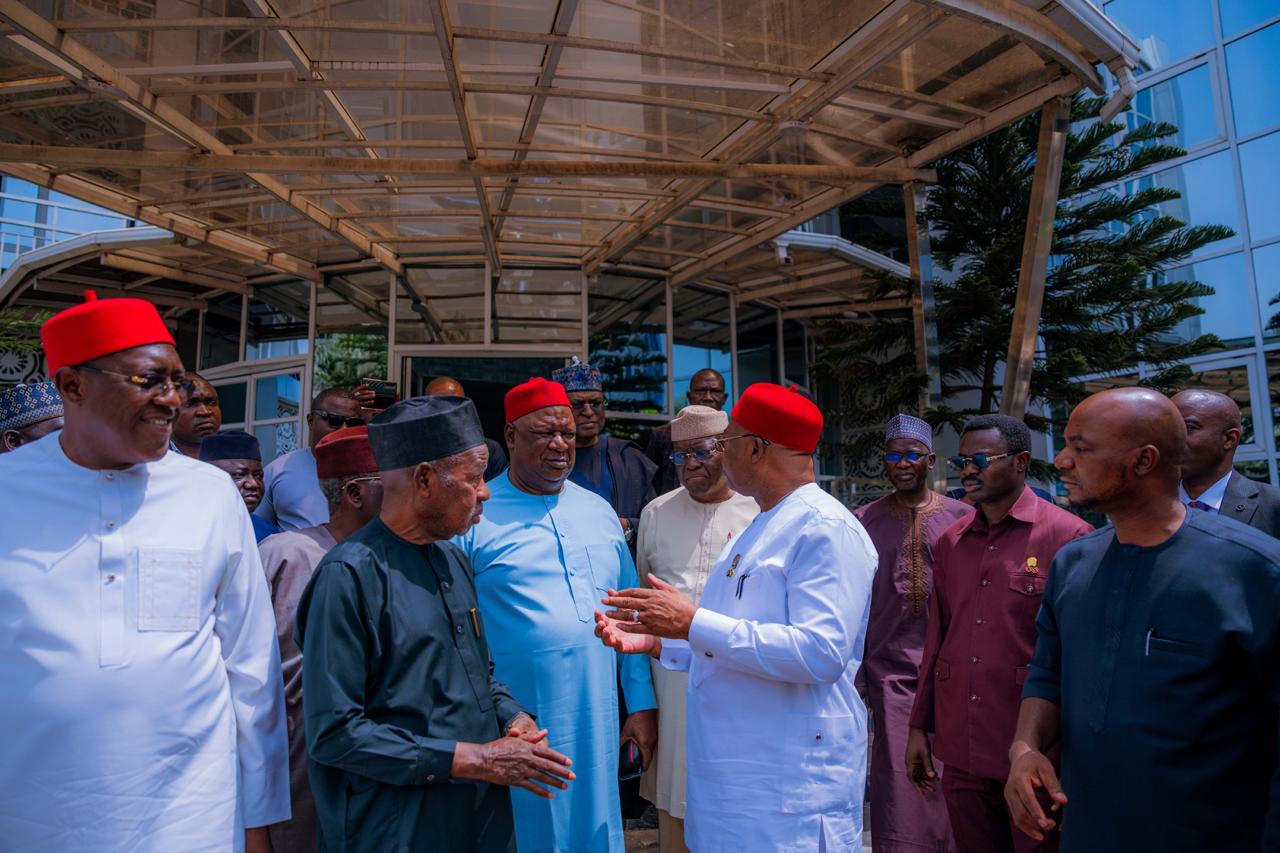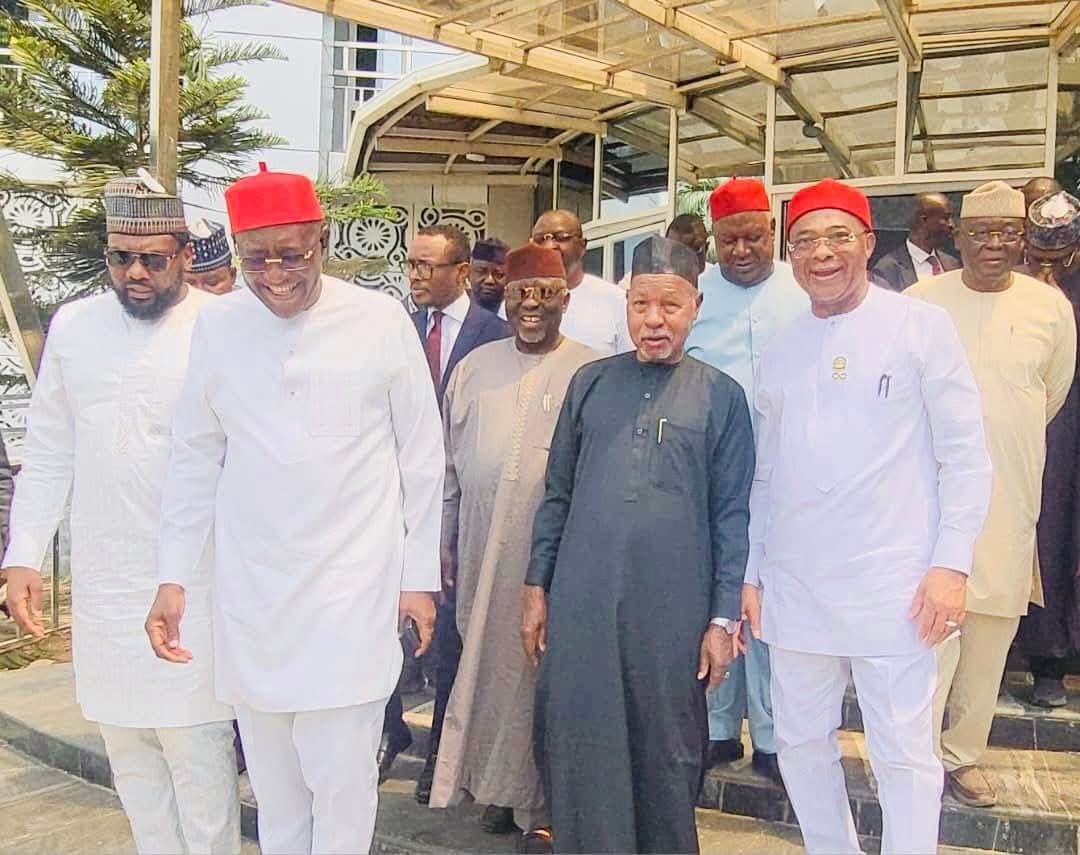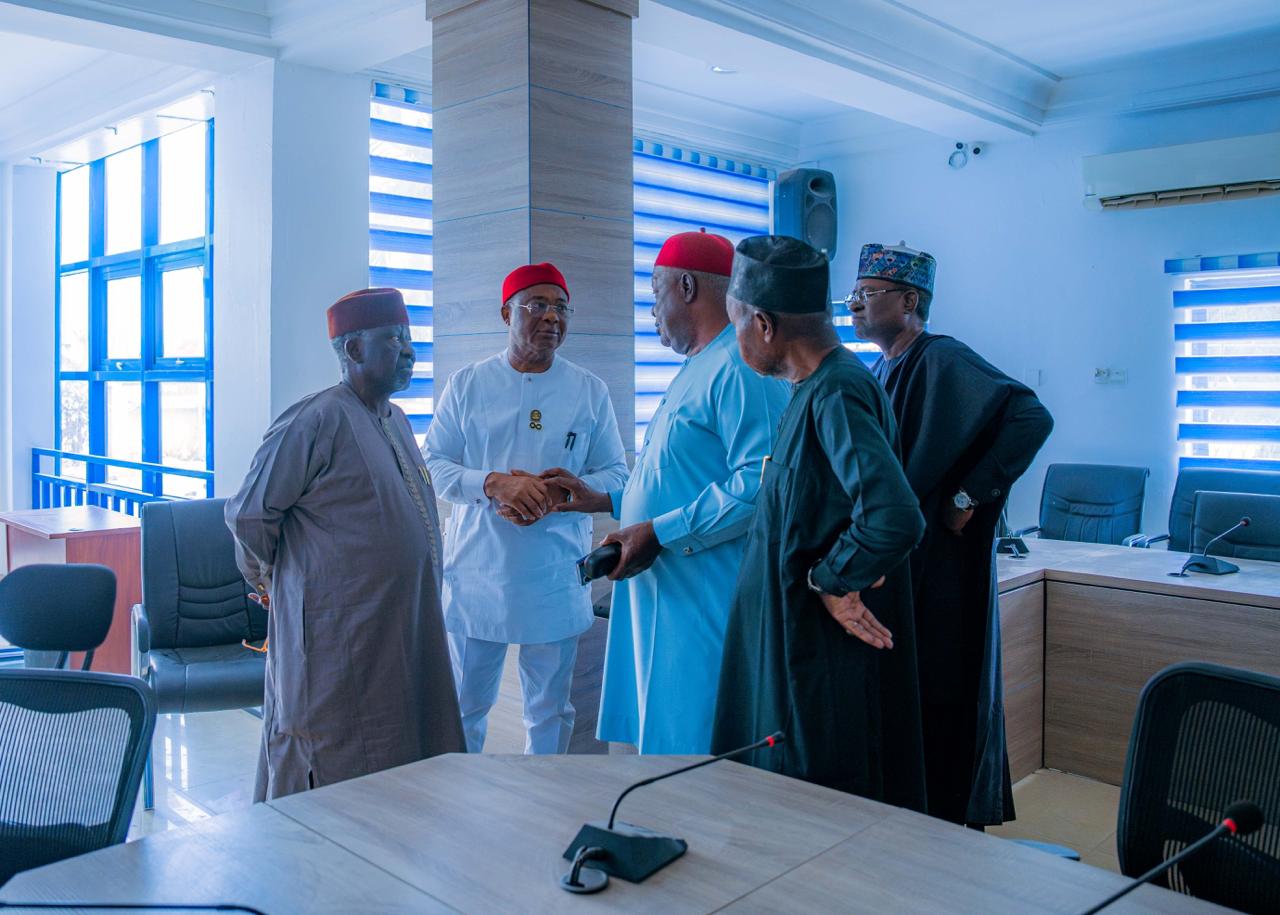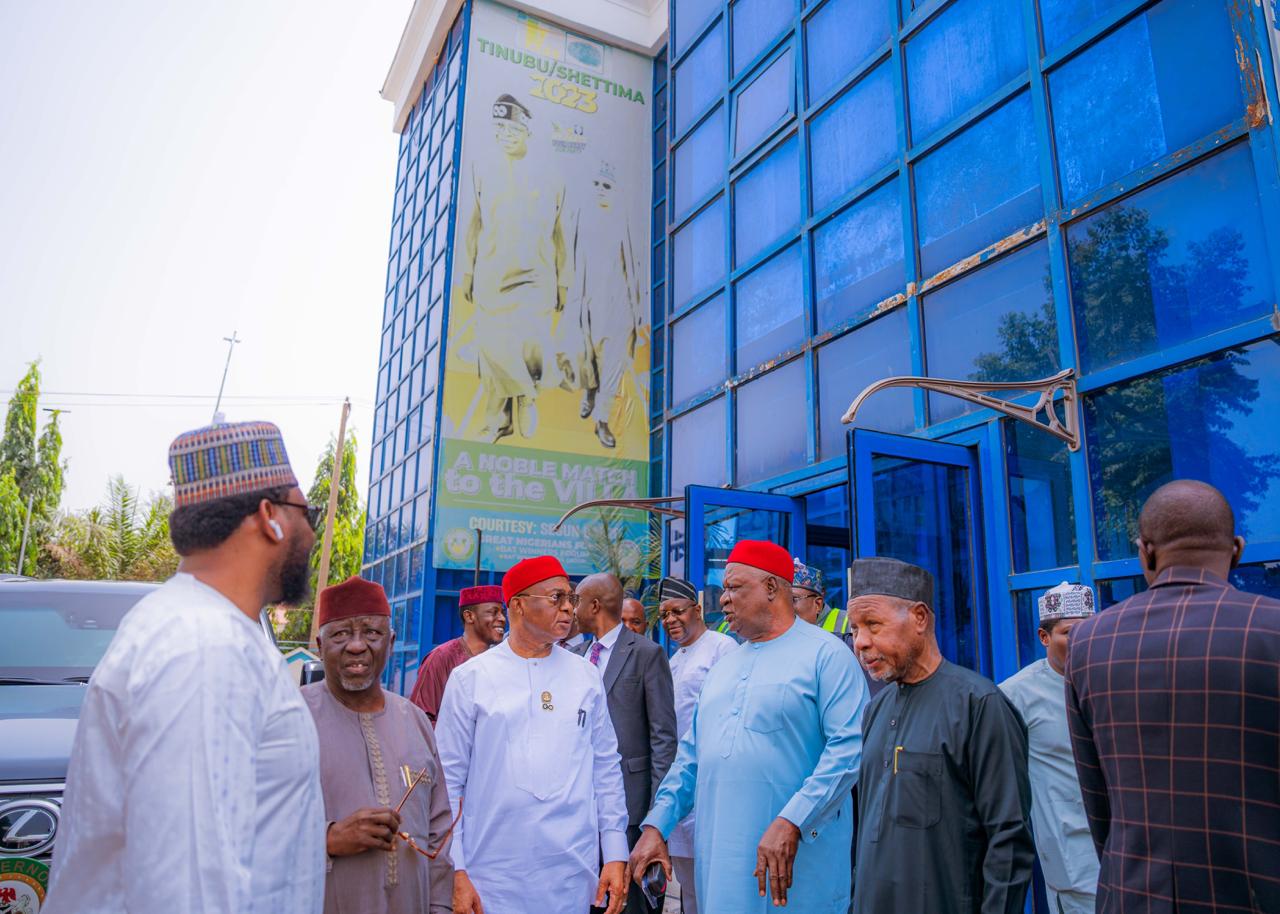Business
Dangote: End of the Road for a Monopolist? By Soji Adekunmbi

Dangote: End of the Road for a Monopolist? By Soji Adekunmbi
Sahara Weekly Reports That In the last one month, easily one of the most discussed issues in Nigeria is the allegation by the Dangote Refinery accusing the International Oil Companies (IOCs) of frustrating its operations by refusing to sell crude to it.
In a statement released in July, which later followed up by Alhaji Aliko Dangote himself, the company said the IOCs preferred to sell their crude to Asian countries or ask them to buy from the foreign subsidiaries instead of giving them priority as directed by Nigeria’s upstream regulatory body, the National Upstream Regulatory Commission (NUPRC).
The company said this development would significantly affect the price of its products because to increase because the trading arms offer cargoes at $2 to $4 per barrel, above NUPRC official price.
“When we entered the market to purchase our crude requirement for August, the international trading arms told us that they had entered their Nigerian cargoes into a Pertamina (the Indonesia National Oil Company) tender, and we had to wait for the tender to conclude to see what is still available”, the company said recently in a statement.
In addition to the allegation against the IOCs, Dangote and his group have also accused oil marketers of shady business practices such as importation of adulterated diesel.
Naturally, some Nigerians have in a fit of patriotic fervor, lined up behind the Dangote Refinery accusing both the Nigerian government and the NNPC Limited, which, like Dangote, is a business entity operating in the same market, of through a business owned by a Nigerian under the bus.
The picture has been painted of a government not supportive of indigenous investment in the Nigerian oil and gas sector.
But is this really the case? Is the Federal Government throwing Dangote to the sharks? Is it out to destroy his business as is being alleged by some Nigerians? The truth is, the allegations do not square with the reality on the ground but are largely driven by sentiments.
Before addressing the real issues, let me first of all make a point which discerning Nigerians will admit to be the truth and nothing but the truth. And this is the fact that there is no Nigerian businessman living or dead who has been as mollycoddled or pampered by successive Nigerian governments, as Alhaji Aliko Dangote.
Practically every Federal Government since 1999 regardless of party affiliation has bent over backward to give the Kano born businessman unfair advantage over his competitors in the businesses he runs from the food, confectionery or cement business. He has been given waiver after waiver to the effect that he has literally wiped out competition in these businesses to create virtual monopoly. Businesses like Ibeto Cement and Larfage are some of the businesses whose market share shrunk as a result of the unfair advantage conferred on Dangote by the government. In fact, many Nigeria aver that but for government patronage and support, he would be nowhere the billionaire status that he enjoys today.
Now, to address Dangote’s allegations directly; the first issue to be established is that the oil and gas sector like every other sector of the Nigerian economy has its nuances or peculiarities. Further, before Dangote Refinery came on board, oil marketing had been in existence with a combined investment portfolio of over N3 trillion in the downstream petroleum sector.
The arrival on the scene of the refinery was welcomed by the marketers who saw it as a Nigerian project and they were ready to work with him for the mutual benefit of Nigerians and their businesses.
Early last month the marketers met with Dangote and raised concerns about his business model which was designed to sell fuels directly through the gantry and cut off depots. He acknowledged their worry and assured them that gantry sales commenced due to urgent needs to evacuate stock in order not to stall continuous refining process.
The gantry can load enough to meet daily national consumption (his actual aim and intent) except that roads will be damaged and it cannot be the same as loading from Lagos, Oghara, Koko, Ph, Ifie-Kporo, Mboh, Calabar and other locations where depots are located.
At the meeting marketers also mentioned the price disparity between local marketers and foreign traders who get DR’s product cheaper by at least, $50/metric tonne than what is offered local companies and Dangote promised that these would be addressed to the mutual benefits of all and he urged marketers to just come forward with orders; alas! DR reneged and continued as it had been selling.
Since the Petroleum Industry Act (PIA) 2021 allows imports under certain conditions, marketers proceeded to call his refinery’s bluff and import cheaper AGO! Dangote tried to block this through the Nigerian Midstream Downstream Petroleum Regulatory Authority (NMDPRA), the agency regulating Midstream and downstream operations in the oil and gas sector (NMDPRA) but both were reported to President Bola Tinubu who directed a reversal of the regulator’s blockade.
There are business entities who toed a similar path when confront with some of the challenges seemingly facing Dangote. In Saudi Arabia, the Saudi government sold Aramco, the national oil company to the public when it faced difficulties.
Even Microsoft founder, Bill Gates sold off majority of his stake in the company retaining a mere five percent interest in the business. Gates took that route after facing anti-trade court cases following Microsoft’s monopolistic nature, which had caused the collapse of several IT companies.
Dangote should do the needful by selling shares to Nigerians as it is obvious given the intricate nature of business in the oil and gas sector particularly the huge capital outlay required to keep a business going, he cannot pull it off alone.
The writer is an Abuja based public policy analyst.
Business
Renewed Hope Ambassadors Inspect RHA Secretariat
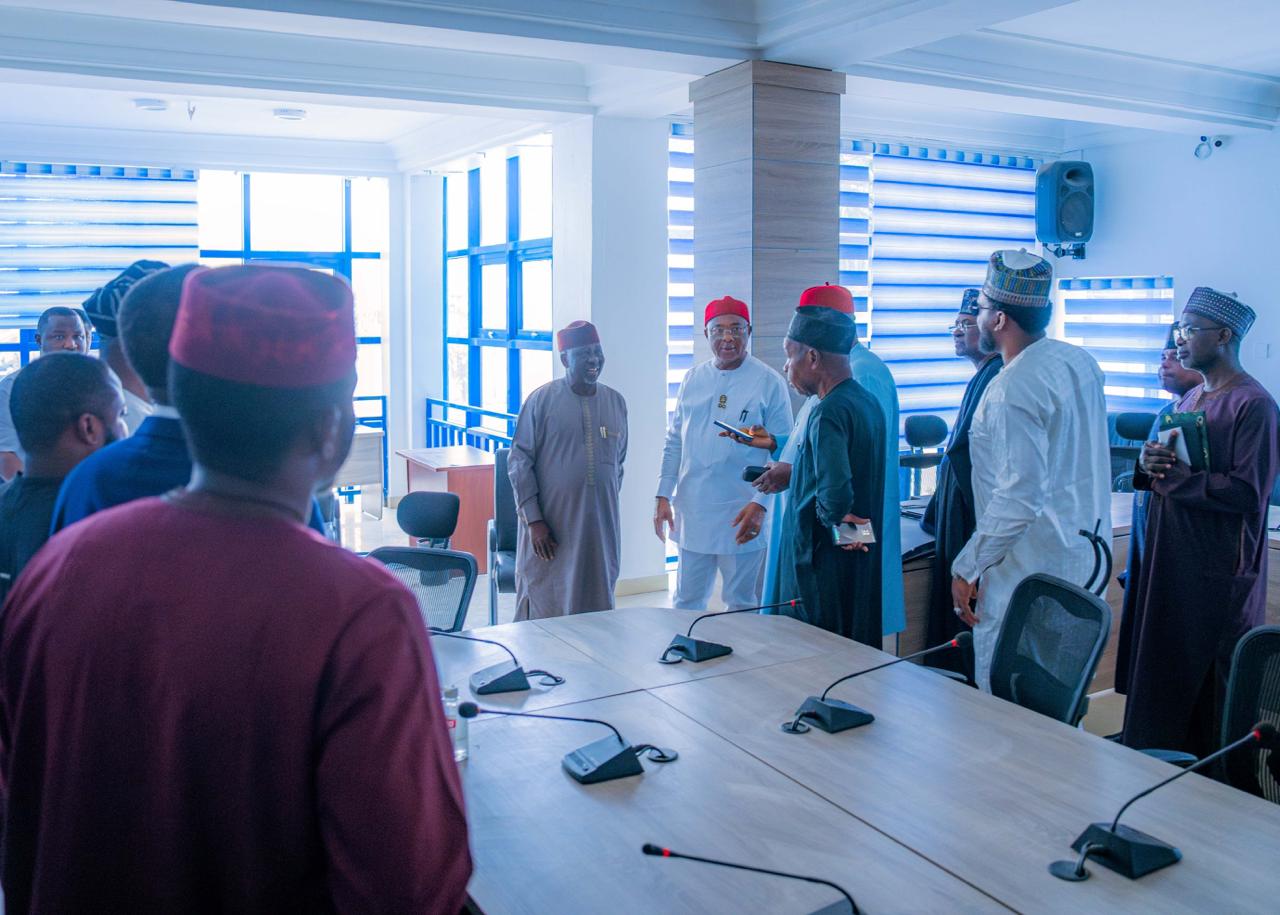
Renewed Hope Ambassadors Inspect RHA Secretariat
Renewed Hope Ambassadors, led by its Director-General and the Governor of Imo State, Hope Uzodinma, alongside Zonal Coordinators (NW, NC, SE), the Media & Publicity Directorate, and other key stakeholders, inspected the RHA Secretariat two days after President Bola Tinubu unveiled the Renewed Hope Ambassadors grassroots engagement drive in Abuja.
Business
Harmony Gardens’ Ibeju-Lekki Portfolio Crosses $1bn

Harmony Gardens’ Ibeju-Lekki Portfolio Crosses $1bn
Harmony Garden & Estate Development Limited has expanded its development activities across Ibeju-Lekki, pushing the projected long-term value of its estate portfolio beyond $1 billion.
Led by Chief Executive Officer Hon. Dr. Audullahi Saheed Mosadoluwa, popularly know Saheed Ibile, the company is developing seven estates within the Lekki–Ibeju corridor. Details available on Harmony Garden & Estate Development show a portfolio spanning land assets and ongoing residential construction across key growth locations.
A major component is Lekki Aviation Town, where urban living meets neighborhood charm, located near the proposed Lekki International Airport and valued internally at over $250 million. The development forms part of the company’s broader phased expansion strategy within the axis.
Other estates in the corridor tagged as the “Citadel of Joy” (Ogba-idunnu) include Granville Estate, Majestic Bay Estate, The Parliament Phase I & II, and Harmony Casa Phase I & II.
With multiple projects active, the rollout of the Ibile Traditional Mortgage System, and structured expansion underway, Harmony Garden & Estate Development Ltd continues to deepen its presence within the fast-growing Ibeju-Lekki real estate market.
Business
BUA Group Showcases Food Manufacturing Strength at 62nd Paris International Agricultural Show

BUA Group Showcases Food Manufacturing Strength at 62nd Paris International Agricultural Show
BUA Group, one of Africa’s leading diversified conglomerates, is maintaining a strong presence at the ongoing 62nd edition of the Paris International Agricultural Show in France, participating as a premium sponsor and supporting the Nigeria Pavilion at one of the world’s most respected agricultural gatherings.
The 62nd Paris International Agricultural Show, taking place from February 21 to March 1, 2026, at Porte de Versailles in Paris, convenes global leaders across farming, agro processing, technology, finance, and policy. The event serves as a strategic platform for industry engagement, knowledge exchange, and commercial partnerships shaping the future of global food systems.
BUA Group’s participation reflects its long term commitment to strengthening the entire food production value chain. Through sustained investments in large scale processing, value addition, and branded consumer products, the Group continues to reinforce its role in advancing food security, industrial growth, and regional trade integration.
Speaking on the Group’s participation, the Executive Chairman of BUA Group, Abdul Samad Rabiu CFR, said, “BUA’s presence at the Paris International Agricultural Show reflects our belief that Africa must be an active participant in shaping the future of global food systems. We have invested significantly in local production capacity because we understand that food security, industrial growth, and economic resilience are interconnected. Platforms like this allow us to build partnerships that strengthen Nigeria’s competitiveness and expand our reach beyond our borders.”
BUA Foods, a subsidiary of BUA Group, maintains a strong footprint in flour, pasta, spaghetti, sugar, and rice production, serving millions of consumers within Nigeria and across neighbouring African markets. The Managing Director of BUA Foods, Engr. Abioye Ayodele, representing the Executive Chairman, is attending the event at the Nigeria Pavilion, engaging industry stakeholders and showcasing the company’s manufacturing capabilities.
Also speaking at the show, Engr. Ayodele stated, “BUA Foods has built scale across key staple categories that are central to household consumption. Our participation at this Show allows us to demonstrate the quality, consistency, and operational strength behind our products. We are also engaging global stakeholders with a clear message that Nigerian manufacturing can meet international standards while serving both domestic and regional markets efficiently.”
The Show provides BUA Group with an opportunity to deepen trade relationships, explore new export pathways, and reinforce Nigeria’s growing relevance within the global agricultural and food ecosystem.
BUA Group remains focused on building enduring institutions, expanding productive capacity, and positioning African enterprise competitively within global markets.
-

 celebrity radar - gossips6 months ago
celebrity radar - gossips6 months agoWhy Babangida’s Hilltop Home Became Nigeria’s Political “Mecca”
-

 society5 months ago
society5 months agoReligion: Africa’s Oldest Weapon of Enslavement and the Forgotten Truth
-

 society6 months ago
society6 months agoPower is a Loan, Not a Possession: The Sacred Duty of Planting People
-

 news7 months ago
news7 months agoTHE APPOINTMENT OF WASIU AYINDE BY THE FEDERAL GOVERNMENT AS AN AMBASSADOR SOUNDS EMBARRASSING

